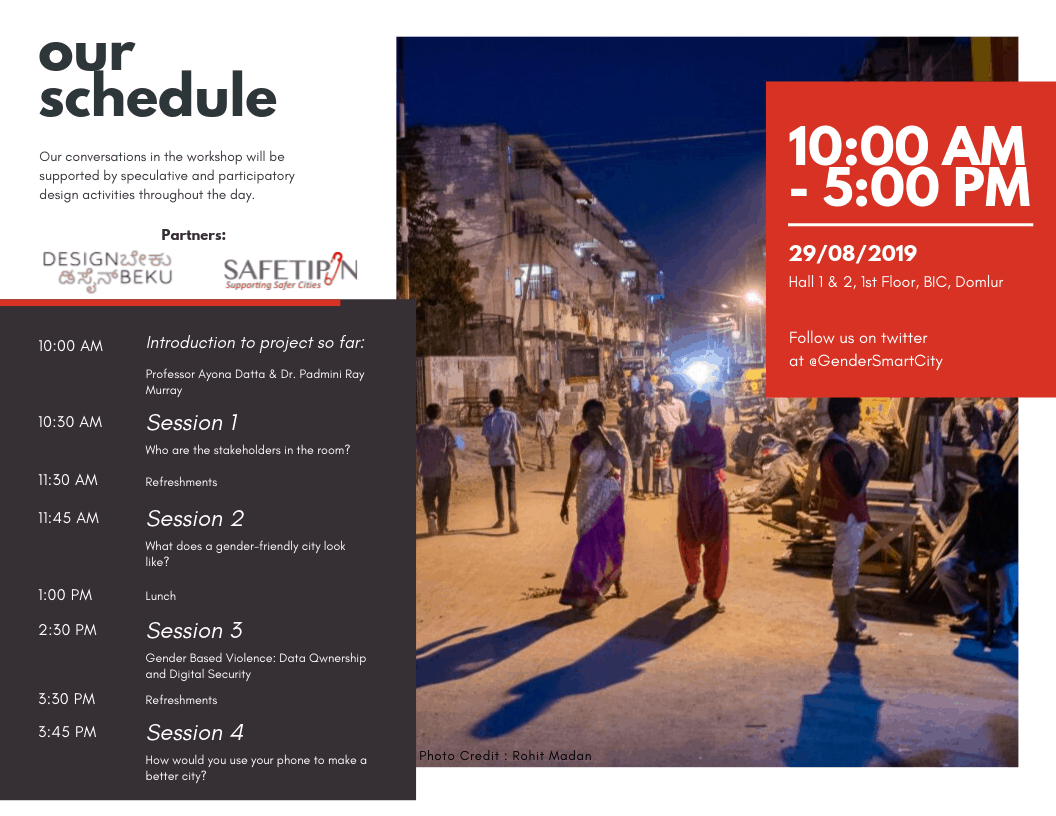A day-long workshop has been organised on how we can envision alternatives to the smart city and challenge the top-down and exclusionary nature of such policies. The workshop includes a number of speculative and participatory design activities through the day and encourages participants to contribute as part of this conversation, which will particularly focus on how those marginalised by gender, caste, disability and other vectors might propose alternatives that are realistic and constructive for these communities. ‘Gendering the Smart City project’ is led by Professor Ayona Datta, UCL, and Dr Padmini Ray Murray, Design Beku.
Event details:
Date & Time: 29 August, 2019 from 10am to 5pm
Venue: Hall 1&2, Bangalore International Center, Domlur
RSVP to https://forms.gle/KJu9QDo33oBTpBKj7 and contact genderingsmartcity@gmail.com for any further information.

[ This article is based on a press release from Gendering the Smart City